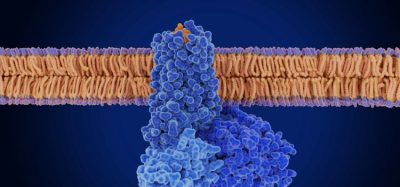mRNA vaccines protect pregnant women against severe COVID-19
Posted: 28 September 2022 | Catherine Eckford (European Pharmaceutical Review) | No comments yet
Results from the first real-world clinical trial showed strong evidence that ensuring pregnant women are vaccinated and boosted with mRNA vaccines helps prevent severe COVID-19.


A new investigation funded by the US Centers for Disease Control and Prevention (CDC) studying the effectiveness of messenger RNA (mRNA) COVID-19 vaccines during pregnancy, concluded that vaccinating women who plan to become pregnant or who are currently pregnant offers considerable protection against being admitted into emergency care or hospitalisation after contracting the virus.
Results of the trial were published in JAMA Network Open, demonstrating that the vaccines were effective in protecting expectant mothers, if administered before or during pregnancy.
When mRNA COVID-19 vaccination clinical trials were first introduced, pregnant women were prohibited from vaccine clinical trials to protect their safety. However, the positive results from the study are a sign both to the pharmaceutical industry and patients that the vaccines are not only safe, but effective against the virus.
During the trial, participants were given two mRNA vaccine doses followed by a booster shot, as recommended by CDC and the American College of Obstetricians and Gynaecologists. Vaccine effectiveness was highest among pregnant women with three doses (initial two vaccinations plus a booster shot).
Study co-author Dr Brian Dixon, director of public health informatics for Regenstrief Institute and Indiana University Richard M. Fairbanks School of Public Health and interim director of the Regenstrief Center for Biomedical Informatics, US, explained: “This strongly suggests that along with other preventive measures, that expectant mothers or women who are considering getting pregnant can take to promote a healthy pregnancy, getting vaccinated and boosted against COVID-19 should be high on the list.”
Vaccine effectiveness was highest among pregnant women with three doses (initial two vaccinations plus a booster shot), as after four months, two-dose protection decreased in non-pregnant adults. “Vaccine utilisation among expectant mothers remains low compared to similarly aged non-pregnant individuals for both the first two vaccines and a booster dose. Hopefully this study will provide pregnant women with the evidence they need to get vaccinated and boosted,” concluded study co-author Dr Shaun Grannis, vice president for data and analytics at Regenstrief Institute, Regenstrief Professor of Medical Informatics and professor of family medicine at Indiana University School of Medicine, US.
Related topics
Clinical Development, Clinical Trials, Immunisation, mRNA, Vaccines, Viruses









